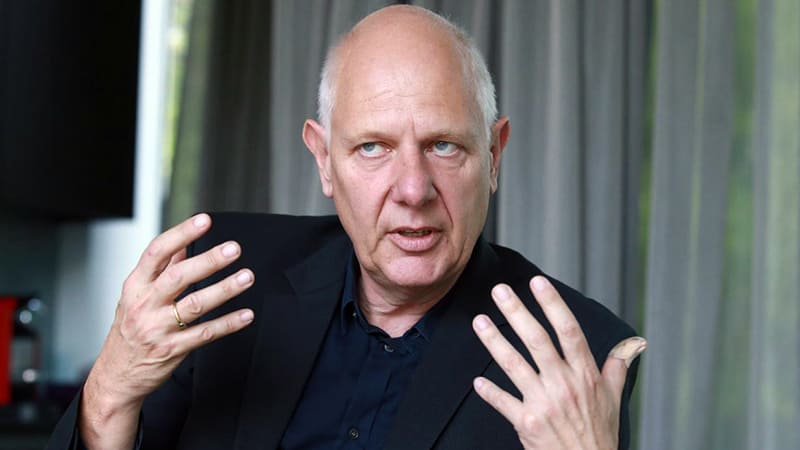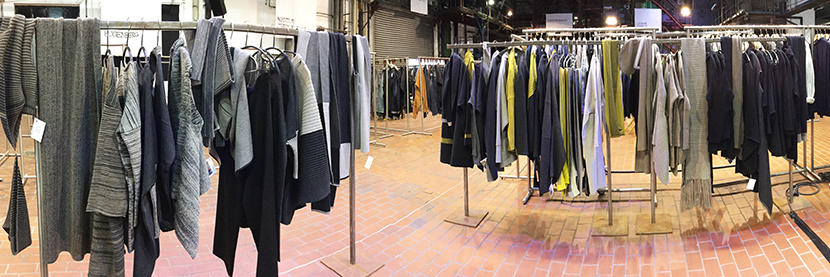What happens afterwards?
This article was written under the impression and conditions of a crisis. Now that the lockdown is being relaxed in Austria, the question for many is "What happens afterwards?"
"Forecasts are not the future"
Our future is usually shaped by forecasts. Forecasts are statistical statements in which the available data are used to make a statement about probable events. We do not know much more than we know. So forecasts do not help us to anticipate the future.
But: They help us to understand which topics and questions are now in the room.
"Corona makes the world! No! I'm making the world for myself - right now!"
"Much more important than believing in forecasts is how we deal with our opportunities, our inner future compass, so to speak," says Harry Gatterer, futurologist. Whether we see a crisis as an opportunity or not does not depend on the forecast. Rather, it depends on how we deal with this crisis and the available knowledge. Forecasting is a tool for orientation and what we think is possible is the true scope.
So the question must be: How do YOU imagine the future? Because this future is the only one that exists for you.
Here we have 3 articles by recognised specialists for you to read.
TIP: You can click on each one to go directly to the post.
Matthias Horx: "Nothing will be the same".
Li Edelkoort: "New Century of Craft"
Nothing will be the same as before.
Futurologist Mattias Horx provides food for thought with his text on the time after the crisis.
I am often asked at the moment when Corona will "be over" and everything will return to normal. My answer: never. There are historical moments when the future changes direction. We call them bifurcations. Or depth crises. These times are now. The world as we know it is dissolving. But behind it, a new world is coming together, the shaping of which we can at least guess at. For this I would like to offer you an exercise with which we have had good experience in visioning processes in companies. We call it the RE-Gnosis. In contrast to the PRO-Gnosis, we do not look "into the future" with this technique. But rather from the future BACK into today. Sounds crazy? Let's give it a try:
The Re-Gnosis: Our World in Autumn 2020
Let's imagine a situation in autumn, say in September 2020. We are sitting in a street café in a big city. It is warm and people are moving on the street again. Are they moving differently? Is everything the same as before? Does the wine, the cocktail, the coffee, taste the same again? Like it did before Corona? Or even better? What will we wonder about in retrospect?
We will be surprisedthat the social Waivethat we had to perform rarely led to loneliness. On the contrary. After an initial shock, many were even relieved that all the running, talking and communicating on multi-channels suddenly came to a halt. Renunciation does not necessarily have to mean loss, but can even open up new spaces of possibility. Many people have experienced this, for example, when they tried interval fasting and suddenly found that food tasted good again. Paradoxically, the physical distance that the virus forced created new closeness at the same time. We got to know people we would never have met otherwise. We contacted old friends more often again, strengthened ties that had become loose and looser. Families, neighbours, friends, have moved closer and sometimes even resolved hidden conflicts. Social politeness, which we had increasingly missed before, increased.
Now in autumn 2020, the atmosphere at football matches is very different from that in spring, when there was a lot of mass rage mobbing. We wonder why that is.
We will be surprised how quickly cultural techniques of the digital suddenly proved themselves in practice. Tele- and videoconferencing, which most colleagues had always resisted (the business plane was better) turned out to be quite practical and productive. Teachers learned a lot about internet teaching. The home office became a matter of course for many - including the improvising and time-juggling involved.
At the same time, seemingly outdated cultural techniques experienced a renaissance. Suddenly you didn't just catch the answering machine when you called, but real people. The virus gave birth to a new culture of long-distance phoning without a second screen. Even the "messages" themselves suddenly took on a new meaning.
People were really communicating again. No one was kept in suspense any more. No one was stalled any more. A new culture of accessibility emerged. Of commitment.
People who were never able to relax because of the hectic pace, even young people, suddenly went for long walks (a word that was rather a foreign word before). Reading books suddenly became a cult.
Reality shows suddenly seemed grotty. All the trivia trash, the endless soul rubbish that streamed through all the channels. No, it didn't disappear completely. But it lost its value furiously. Can anyone still remember the political correctness controversy? The endless culture wars over ... well, what was it all about?
Crises work above all by dissolving old phenomena, making them superfluous... Cynicism, this casual way of keeping the world at bay through devaluation, was suddenly abundantly out. The exaggeration-fear hysteria in the media, after a brief initial outbreak, was kept in check. Along the way, the endless flood of gruesome crime series also reached its tipping point.
We will be surprisedthat drugs were finally found in the summer that increased the survival rate. This lowered the death rates and Corona became a virus we just have to deal with - similar to influenza and the many other diseases. Medical progress helped. But we also learned: It was not so much the technology but the change in social behaviour that was the decisive factor. The fact that people could remain in solidarity and constructive despite radical limitations was the decisive factor. Human-social intelligence helped. The much-vaunted artificial intelligence, which, as we know, is all has only had a limited effect on Corona.
This has shifted the relationship between technology and culture. Before the crisis, technology seemed to be the panacea, the bearer of all utopias. Today, no one - or only a few hardcore people - still believe in the great digital salvation. The big technology hype is over. We are focusing our attention more on the human questions: What is the human being? What are we for each other?
We marvel backwardshow much humour and humanity actually emerged in the days of the virus.
We will be surprisedhow far the economy could shrink without something like "collapse" actually happening, which was previously conjured up with every tax increase and government intervention, no matter how small. Although there was a "black April", a deep economic slump and a stock market collapse of 50 per cent, although many companies went bankrupt, shrank or mutated into something completely different, it never came to zero. As if the economy were a breathing being that can also doze or sleep and even dream.
Today, in autumn, there is a global economy again. But global just-in-time production, with huge branching value chains that cart millions of individual parts across the planet, has outlived its usefulness. It is being dismantled and reconfigured. Intermediate storage facilities, depots, reserves are growing again everywhere in the production and service facilities. Local production is booming, networks are being localised, crafts are experiencing a renaissance. The global system is drifting towards globalisation: localisation of the global.
We will be surprisedthat even the asset losses due to the stock market collapse do not hurt as much as it felt at the beginning. In the new world, wealth suddenly no longer plays a decisive role. More important are good neighbours and a flourishing vegetable garden.
Could it be that the virus has changed our lives in a direction it wanted to change anyway?
RE-Gnosis: Coping with the Present by Leaping into the Future
Why does this kind of "from the future" scenario seem so irritatingly different from a classical forecast? This has to do with the specific characteristics of our sense of the future. When we look "into the future", we usually only see the dangers and problems "coming towards us", which pile up into insurmountable barriers. Like a locomotive coming out of the tunnel and running over us. This fear barrier separates us from the future. That is why horror futures are always the easiest to portray.
Re-gnoses, on the other hand, form a loop of cognition in which we can inner change, into the calculation of the future. We connect inwardly with the future, and this creates a bridge between today and tomorrow. A "future mind" - future awareness - is created.
If done correctly, something like future intelligence emerges. We are able to anticipate not only the external "events" but also the internal adaptations with which we react to a changed world.
This feels quite different from a prognosis, which in its apodictic character always has something dead, sterile about it. We leave the rigidity of fear and get back into the liveliness that belongs to every true future.
We all know the feeling of successfully overcoming fear. When we go to the dentist for treatment, we are anxious long beforehand. We lose control in the dentist's chair and it hurts before it even hurts. Anticipating this feeling, we work ourselves up into fears that can completely overwhelm us. However, once we have survived the procedure, there is a coping feeling: the world seems young and fresh again and we are suddenly full of zest for action.
Coping means: coping. Neurobiologically, fear adrenaline is replaced by dopamine, a kind of endogenous future drug. While adrenaline directs us to flee or fight (which is not really productive in the dentist's chair, nor when fighting Corona), dopamine opens our brain synapses: We're excited about what's coming, curious, anticipatory. When we have a healthy level of dopamine, we make plans, have visions that propel us into anticipatory action.
Surprisingly, many in the Corona crisis have exactly this experience. A massive loss of control suddenly turns into a real rush of positivity. After a period of bewilderment and fear, an inner strength emerges. The world "ends", but in the experience that we are still there, a kind of new-ness arises within.
In the middle of the shutdown of civilisation, we walk through forests or parks, or across almost empty squares. But this is not an apocalypse, but a new beginning. It turns out that change begins as a changed pattern of expectations, perceptions and world connections. Sometimes it is precisely the break with routines, the familiar, that releases our sense of the future. The idea and certainty that everything could be completely different - even better.
Perhaps we will even be surprisedthat Trump will be voted out in November. The AFD is showing serious signs of fraying because vicious, divisive politics do not fit with a Corona world. In the Corona crisis it became clear that those who want to set people against each other have nothing to contribute to real issues for the future. When things get serious, the destructive nature of populism becomes clear. Politics in its original sense as the shaping of social responsibilities has been given a new credibility, a new legitimacy in this crisis. Precisely because it had to act "authoritatively", politics created trust in society. Science also experienced an astonishing renaissance during the probation crisis. Virologists and epidemiologists became media stars, but "futurist" philosophers, sociologists, psychologists, anthropologists, who had previously been on the fringes of polarised debates, also regained voice and weight.
Fake news, on the other hand, rapidly lost market value. Even conspiracy theories suddenly seemed like slow sellers, although they were offered like sour beer.
A virus as an evolutionary accelerator
Deep crises also point to another basic principle of change: Trend-countertrend synthesis.
The new world after Corona - or better with Corona - emerges from the disruption of the megatrend Connectivity. In political-economic terms, this phenomenon is also called "globalisation". The interruption of connectivity - through border closures, separations, partitions, quarantines - does not, however, lead to a Abolish of connections. But to a reorganisation of the connectomes that hold our world together and carry it into the future. There is a phase change in the socio-economic systems.
The world to come will value distance again - and precisely because of this, shape connectedness more qualitatively. Autonomy and dependence, opening and closing, will be rebalanced. This can make the world more complex, but at the same time more stable. This reshaping is largely a blind evolutionary process - because one thing fails, the new, capable of survival, prevails. This makes you dizzy at first, but then it proves its inner meaning: what is viable for the future is what connects the paradoxes on a new level.
But this process of complexification - not to be confused with complication - can also be consciously shaped by people. Those who can do this, who speak the language of the coming complexity, will be the leaders of tomorrow. The hopefuls-to-be. The coming Gretas.
"We will adjust our whole attitude towards life through Corona - in terms of our existence as living beings in the midst of other life forms."
Slavo Zizek at the height of the Corona crisis in mid-March
Every deep crisis leaves a story, a narrative that points far into the future. One of the strongest visions left by the corona virus is of Italians playing music on balconies. The second vision is sent to us by satellite images that suddenly show the industrial areas of China and Italy free of smog. In 2020, humanity's CO2 emissions will fall for the first time. This fact will do something to us.
If the virus can do that - can we do it too? Maybe the virus was just a messenger from the future. Its drastic message is: human civilisation has become too dense, too fast, too overheated. It is racing too fast in a certain direction where there is no future.
But it can reinvent itself.
System reset.
Cool down!
Music on the balconies!
This is how the future works.
For more information: Matthias Horx (www.horx.com) and his Zukunftsinstitut www.zukunftsinstitut.de

© Kurier/Juerg Christandl
New century of craftsmanship
Li Edelkoort, the world's most famous trend researcher shares her thoughts and predictions on the Corona Crisis
Disruptive power of the Covid-19 crisis by Lidewij Edelkoort
Trend researcher Lidewij Edelkoort predicts an unprecedented global recession for the fashion industry - not in a monetary sense but in terms of the disruptive power of the Covid-19 crisis. At the same time, she sees it as an unleashing force that will permanently change consumption patterns.
"Suddenly fashion shows look bizarre and out of place and ads from travel suppliers are seen as invasive and ridiculous."
It will take a lot of insight and courage to build an economy with new values and a new approach to production, transport, distribution and retail, Edelkoort says. She hopes that actors will seize the opportunity and establish a different and better system. A system that shows more respect for human labour and human conditions.
Respect for human conditions
After just two months of reduced production operations in China, the air above the industrial centres has visibly cleared up, the trend researcher knows. Including air and sea travel, holiday trips, business trips and transport, there is considerable potential for a positive environmental effect.
Edelkoort would like to see Covid-19 become a A return to local production and craftsmanship and that this is also valued accordingly.
"Local industries and activities would gain momentum and civic initiatives such as barter systems, round tables, farmers' markets and street events, dance and singing competitions, and a very dominant DIY aesthetic would take over. My future prediction for the age of the amateur seems to be coming much faster than I expected."
abridged; for more details: https://www.vogue.de/mode/artikel/li-edelkoort-prognosen-zur-coronakrise

© John Phillips
Impact of the Corona crisis on job profiles, leadership and Gen Z
Andreas Herde and Oliver Burauen, Human Resources Specialists
We are currently in the greatest crisis of the 21st century, triggered by the Corona virus. And let's be honest: no one can predict with certainty today when and how this crisis will end and what legacy it will leave us in the form of changes in all areas of life.
1. upheavals on the labour market with various currents
The crisis will undoubtedly trigger violent upheavals in the labour market. Despite all efforts on the part of companies and politicians, there will inevitably be insolvencies with redundancies. Only the extent of these is still unclear. At least some of the entrepreneurs and employees affected will reorient their professional activities, whether of their own free will or out of necessity.
In the process, we will see three currents:
- We predict a kind of new founding era with a more local and regional focus than before. Globalisation has revealed its weaknesses in the crisis.
- We are learning painfully that it is not always wise for certain products, some of which are simple but can become very important, to be produced exclusively in the Far East for cost reasons. The desire for more self-sufficiency will be served by a wave of new founders.
- We will also see a further strengthening of the desire for meaningful occupational activity that already existed before the crisis. The meaningfulness of professional activity will once again gain ground over the turbo-capitalist orientation.
2. upgrading of job profiles
We will also see an upgrading of many professions, the importance of which is only becoming clear to many in the current crisis. These include, for example, the nursing professions. Unfortunately, their importance for our community has so far led a kind of shadowy existence. After the crisis, we will see that nurses will be held in higher esteem and that their reputation will be comparable to that of publicly respected professions such as the fire brigade. And that is good. But we also expect more fairness in the evaluation of the far too often underestimated activities of many other everyday heroes, exemplified by food retail workers. Here, we admit, our prognosis is somewhat mixed with the hope that our collective memory will extend well beyond the time immediately after the crisis.
3. virtualisation, flexibilisation and digitalisation of the world of work are advancing
The virtualisation, flexibilisation and digitalisation of daily work processes, which have been virtually forced in the current crisis, are currently undergoing their baptism of fire. A medical virus is thus becoming a digitalisation driver and accelerating a development that has often been held back by outdated ideas. Tools such as home office, collaborative digital work or video conferencing, which many managers had previously viewed with scepticism, are currently without alternative. And lo and behold: it works. This experience, enforced by Corona, will have a lasting effect. The attendance culture and the control instinct of many managers are currently shaking to their foundations.
4. a general overhaul of the leadership culture
The development just described will also have a massive impact on leadership culture. Managers who rely on old-school control and presence are painfully realising that their leadership style is outdated, because there is another way. And better. Even now, during the crisis, it is becoming clear that modern leadership requires moderation instead of control, the granting of freedom instead of restrictions. This spirit of modern, forward-looking leadership based on trust is now permanently out of the bottle. At least we hope and believe so.
5. a general overhaul of the leadership culture
In the current crisis, employees see very clearly how their employers treat them, how great the commitment of companies is to their workforces really and also in times of crisis. Employees will remember disloyalties and breaches of trust very clearly.
6. Gen Z will have new experiences in a changed environment
Generation Z has so far experienced the labour market as a workers' paradise. In a post-crisis labour market environment, these young people will find significantly changed conditions. Not every wish will be read from their lips and promptly fulfilled. This will be a new experience for this group and they will have to adjust to these changed conditions. It will be very exciting to observe with what flexibility and willingness the young colleagues will meet these changed conditions.
For more information: https://www.wuv.de/karriere/sechs_prognosen_zur_arbeitswelt_nach_corona?xing_share=news

Andreas Herde and Oliver Burauen

